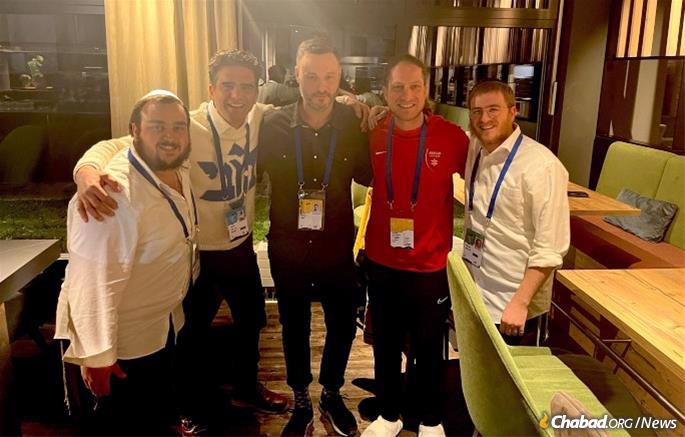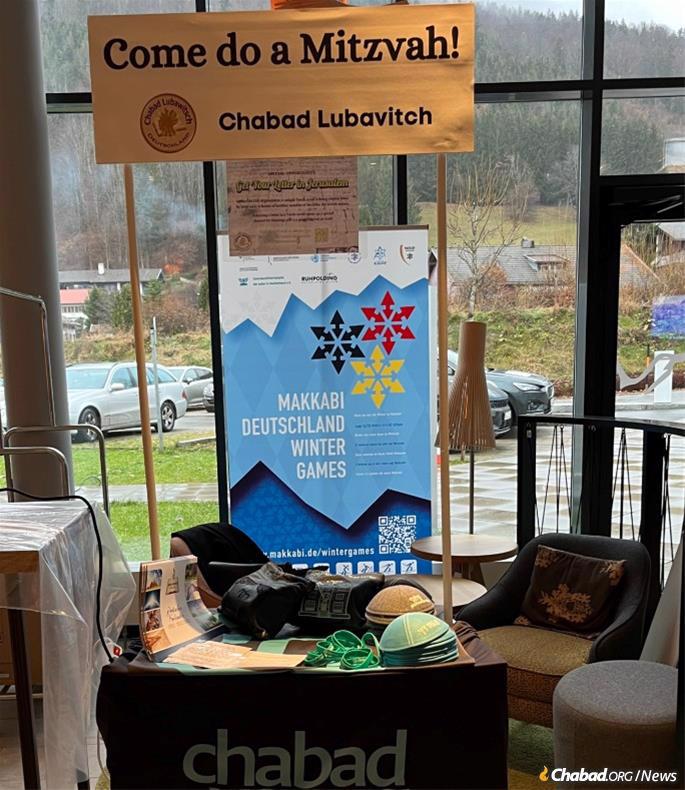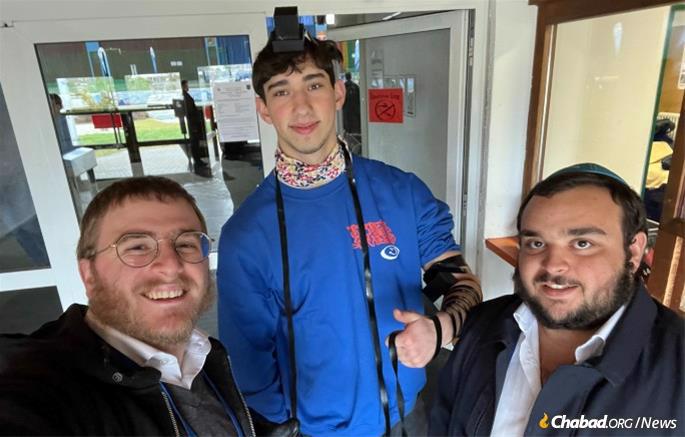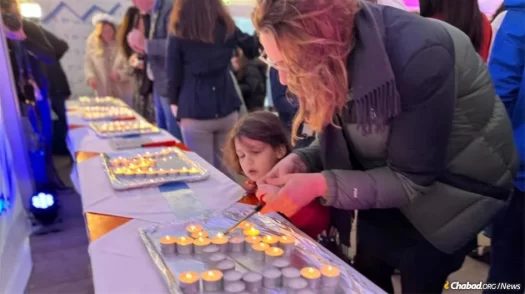
Historic Maccabi Games in Germany Pause for Shabbat
by Bruria Efune – chabad.org
More than 85 years after the Nazis banned Jewish participation in sports, Jewish athletes from around the world gathered in Ruhpolding, Germany, to compete in the Maccabi Deutschland Winter Games. In a particularly memorable moment, Alfi Goldenberg, the chairman of the organizing committee announced: “We’re all here together, we had great fun, and now we’re going to stop for Shabbat.”
A few hours later, hundreds of Jewish women and girls lit Shabbat candles, and more than 400 Jewish people from around the world sat together for an inspired Shabbat meal.
Nathan Freddie Ries from Team Germany competed in the cross-country skiing sprint, but his real thrill, he says, came on Shabbat. “It was great!” he told Chabad.org. “Incredible vibes and really good prayers. I loved it! It’s how I like it in my synagogue at home, but this was full of young people, which I really loved to see.”
Organized by the Maccabi World Union, the games aim to promote Jewish unity through sports. This year’s event featured more than 350 athletes competing in disciplines such as alpine and cross-country skiing, snowboarding, biathlon, figure skating, Bavarian curling and snow volleyball.
The last Maccabi Winter Games were held in Czechoslovakia in 1936, and before that, in Poland in 1933. The games came to an abrupt end when Nazis enacted laws banning Jews from participating in organized sports, among other anti-Jewish decrees. The renewal of the winter games occurring specifically in Germany made an uplifting statement on Jewish resiliency, as well as a powerful opportunity for Jewish athletes to come together and celebrate their Judaism through competition.
The event’s organizers were determined to cultivate an atmosphere of strong Jewish spirit, which led them to Rabbi Israel Diskin, director of Chabad-Lubavitch of Munich. Dr. Oren Osterer, head of the organizing committee for the Maccabi Deutschland Winter Games, requested that Chabad bring Jewish energy and tradition to the event, especially over Shabbat.

Chabad in Germany partnered with Chabad Young Professionals in New York, which sent two energetic rabbinical students, Mendel Slonim and Shmuel Lachkar, along with a mitzvah stand, which they operated in the lobby of the hotel where the athletes and many visitors were staying. Athletes and Maccabi volunteers were able to commit to adding a new mitzvah, purchase a letter in a Torah scroll, put on tefillin or receive a beautiful pair of candlesticks for Shabbat.
“One woman told us that she lost her Shabbat candlesticks when she was fleeing the war in Ukraine, noted Lachkar. “We were so pleased to give her a new set.”
An active WhatsApp group helped attendees participate in daily prayers with a minyan.
“People were very emotional about restarting something that had been stopped by the Nazi regime,” explained Slonim. “One man told me that the only other time he was so moved as to put on tefillin was when he was at the Western Wall in Jerusalem. He felt the energy in the air—the unity of Jews, and that we’re all in this together.”
Debbie Friedman, a Maccabi staff member from Germany, agreed. “The Winter Games far exceeded our expectations,” she said. “Though it was a winter sports competition, the feeling of community, Jewishness and togetherness was present at all times.”
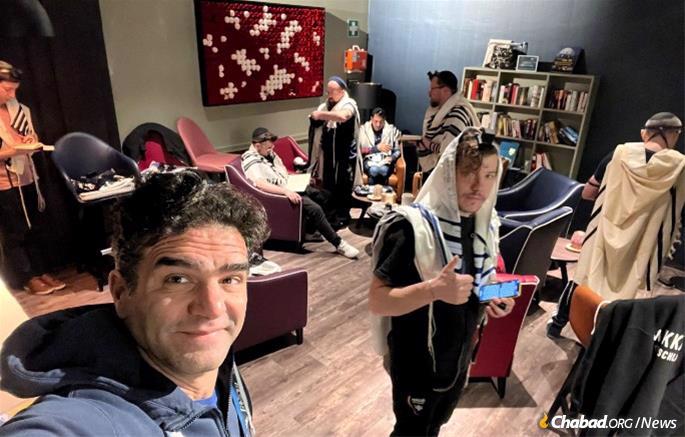
Stopping for Shabbat
The event lasted a week, from Jan. 2, through Jan. 9. In the midst of the competition, a full 25 hours of meaningful pause took place over Shabbat.
The celebration kicked off with a candle-lighting ceremony organized by Chabad, dubbed “Living Lights.” Behind the Shabbat candles were posters with photos of Jewish women and girls lighting Shabbat candles before the original Maccabi Games were halted by the Nazis.
The women were called up to light the candles in order of nationality and time zone, demonstrating the unity of Jewish women around the globe.
Rabbi Diskin and three additional rabbinical students joined the Maccabi guests to bring an extra lively energy to Shabbat.
“It is excellent timing to restart the Maccabi Winter Games now,” Diskin told the guests. “This year specifically is a Hakhel year, a time for Jewish people to gather together in Jewish spirit—and here we are, a group of 400.”

On Friday night, after the Shabbat meal, a spontaneous farbrengen began, full of singing and dancing, which went on late into the night.
One attendee was so moved that he stood up and committed to putting on tefillin every day.
“There were new friendships made with fellow Jews from around the globe,” said Friedman. “Some of the participants got a first feeling of how joyful Shabbat can be and absolutely loved it. The joy of being together was overwhelming. It was as if for a week, you could just live your Jewishness with such pride, and everyone went home with a full heart.”
